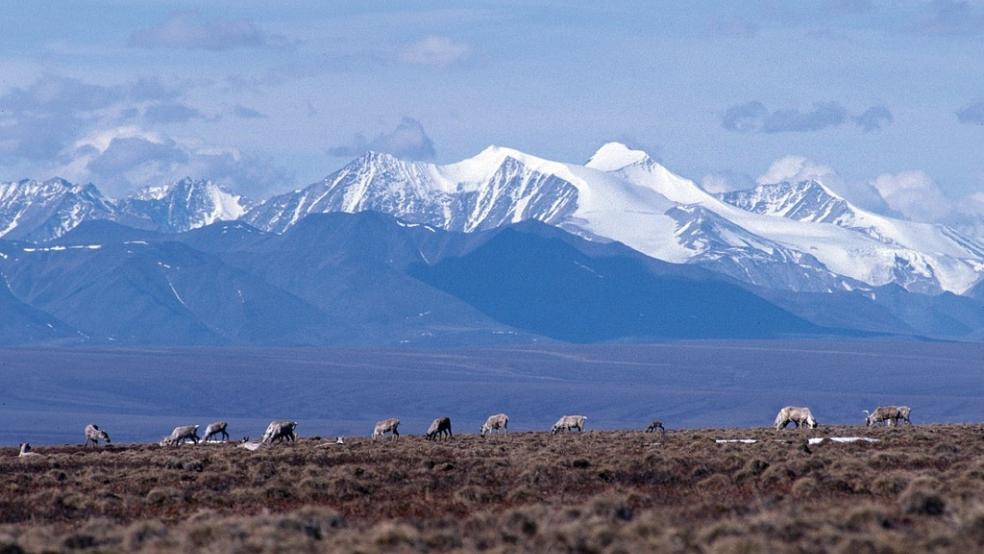The Republican Party has a very clear vision for America’s energy independence, which could become America’s vision for energy independence if polls suggesting the GOP will take control of the U.S. Senate in next week’s midterm elections prove correct. (They have held the majority in the House of Representatives since 2010.)
That vision is based on the idea that all of the country’s natural resources should be fully tapped in order to reduce energy imports from countries like Saudi Arabia or Venezuela, including oil, natural gas and coal. Republican lawmakers argue that while efforts to reduce carbon emissions are necessary, Americans are paying more than they should for energy and any prohibition on the exploitation of extractable sources could threaten the country’s new status as one of the world’s foremost oil producers.
Related: Cruz, Paul Promise Very Different Futures If GOP Takes Senate
While that message can be turned into a nice sound bite during an election campaign, it ignores economic and environmental consequences.
Republicans have long eyed the pristine Arctic National Wildlife Refuge (ANWR) and Outer Continental Shelf (OCS) as a potential energy jackpot. As the GOP sees it, the aggressive protection of ANWR’s fragile ecosystem prevents it from becoming a fully participating resource in the country’s energy security. In 2008, the issue divided the party when then-presidential candidate Sen. John McCain opposed opening up ANWR, saying it would be like drilling in the Everglades or Grand Canyon.
Under President Barack Obama, the federal government has reduced the amount of drilling on federal land and slashed bymore than half the amount of new permits it grants for offshore oil and gas drilling. Obama has come out strongly against drilling in ANWR, saying it would “irreversibly damage a protected national wildlife refuge without creating sufficient oil supplies to meaningfully affect the global market price or have a discernible impact on U.S. energy security."
The issue has come roaring back in this year’s Senate race in Alaska. With the strong support of the national party, Republican Dan Sullivan is seeking to oust incumbent Democratic Sen. Mark Begich. Begich is an oddity among Democrats because he supports opening ANWR to drilling – a position Republicans agree with but have found a new way to attack, by blaming Begich for not persuading the White House to change its stance.
Related: How a GOP Senate Would Challenge Obama on Foreign Policy
Last year, Begich threatened to “bang” Obama over the head until he agreed to open up ANWR. “I’m going to take him to the Arctic, show him ANWR, tell him why we need to drill in ANWR, change his mind on that if I can, bang him over the head a few times on it,” Begich told CNN. Despite Begich’s showboating, the White House has not budged on its position, which has made the Alaskan senator politically vulnerable.
Alaska’s other senator in Washington, Lisa Murkowski, has long argued that drilling in ANWR would help reduce the national deficit. But that view glosses over the economics of the issue.
The Department of Energy has repeatedly warned that estimates of oil in ANWR, ranging from 5.7 to 16 billion barrels, are not proven. The United States Geological Service came up with its wide range by comparing proven reserves at nearby oil deposits.
Furthermore, in 2010, a reassessment of the nearby National Petroleum Reserve-Alaska showed that many deposits thought to contain oil contained natural gas instead. Overall estimates for natural gas reserves in the region were also lowered.
Related: News Shows Finally Discuss How a GOP Congress Would Govern
Finally, the argument that drilling ANWR would help reduce American dependence on energy exports is not watertight. If the high-end of the estimates proved to be true, at full capacity, ANWR would contribute about 1.2 percent of global oil production, which would not be enough to drastically alter oil prices – which are already at modern lows -- or to halt American imports of oil products that are remaining steady.
Sarah Palin’s ‘Drill, baby, drill’ battle cry may have been retired in the wake of the disastrous Deepwater Horizon spill, but a GOP-led Senate could easily revive it. To fully discover the reserves within ANWR would take exploratory drilling which, quite apart from threatening more ecological disasters, flies in the face of the wishes of local communities and threatens to destroy an ecosystem that has long been seen as an treasured American wildlife refuge. If a Republican-led Congress is determined to pursue new sources of hydrocarbons, then surely Obama’s recent, controversial shift on offshore drilling is a less risky proposition.
This article was originally published in OilPrice.com.
Read more from Oilprice.com:
Return to the Arctic: Shell Looks Set To Take Another Run
How do you Spend $35 Billion in a Town of 13,000 People?
Shell Needs Five More Years In The Arctic

